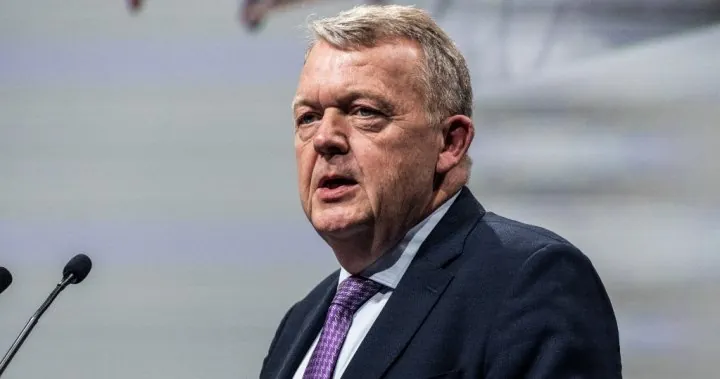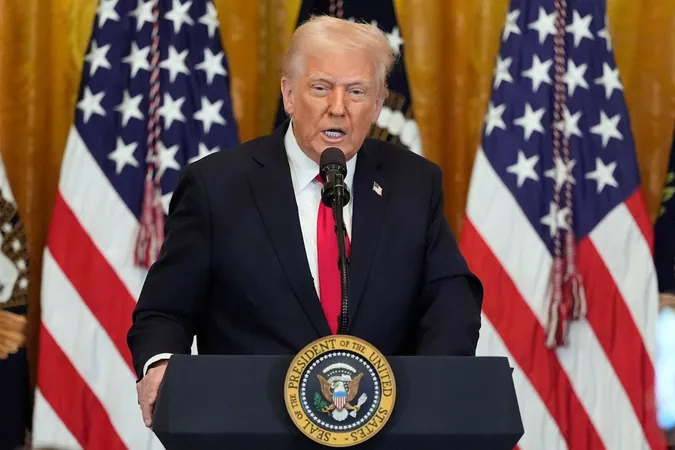
Tensions Rise as Danish Foreign Minister Critiques Trump Administration Following JD Vance's Greenland Visit
2025-03-29
Author: Olivia
In a heated response to recent comments made by U.S. Vice President JD Vance during his trip to Greenland, Danish Foreign Minister Lars Løkke Rasmussen has publicly criticized the tone of the Trump administration’s rhetoric regarding Denmark and Greenland. In a video statement shared via social media, Rasmussen emphasized that Denmark is not only committed to investing in Arctic security but also welcomes further cooperation with the United States.
Rasmussen stated, “Many accusations and many allegations have been made. We are open to criticism, but let me be completely honest: we do not appreciate the tone in which it is being delivered. This is not how you speak to your close allies. And I still consider Denmark and the United States to be close allies.”
Vice President Vance, during his visit to the strategically significant island, asserted that Denmark has "underinvested" in Greenland's security, urging a change in Denmark's protocol as President Donald Trump contemplates claims to the territory. Vance's visit included a tour of the Pituffik Space Base, a U.S. military facility on Greenland, but faced backlash as the original schedule was seen as lacking consultation with Greenlanders and Danes.
Vance's concerns highlighted what he described as Denmark's failures to properly support the people of Greenland and bolster its security. “Our message to Denmark is very simple: You have not done a good job by the people of Greenland,” he said. “That has to change.” He hinted at the U.S. having no option but to take a significant stance regarding Greenland's security, advocating for the island's potential independence from Denmark.
This diplomatic fracas comes amid a backdrop of rising Greenlandic political unity against proposed U.S. control. Following Vance's statements, lawmakers in Greenland reached an agreement to form a coalition government, opposing the Trump administration’s overtures with a firm stance. Danish Prime Minister Mette Frederiksen defended her country’s role, asserting Denmark stands as a solid ally in Arctic defense.
While Greenlanders reacted strongly to the idea of an American takeover, with protests erupting in Copenhagen where demonstrators proclaimed “back off, USA,” the historical ties between Denmark and the U.S. remain significant. A 1951 defense agreement allows for a U.S. military presence, which has diminished from thousands of troops across numerous bases in the past to approximately 200 at the current Pituffik facility.
In a reminder of this longstanding partnership, Rasmussen noted, “If that is what you wish, then let us discuss it,” alluding to the potential for enhanced military collaboration if requested by the U.S.
As Greenland continues to assert its political autonomy, the implications of these shifting dynamics within Arctic geopolitics remain to be seen. The conversation surrounding Greenland is more than just security; it embodies the complexities of colonial legacies and self-determination as the island navigates its future amidst growing interests from the U.S. and other global powers.









 Brasil (PT)
Brasil (PT)
 Canada (EN)
Canada (EN)
 Chile (ES)
Chile (ES)
 Česko (CS)
Česko (CS)
 대한민국 (KO)
대한민국 (KO)
 España (ES)
España (ES)
 France (FR)
France (FR)
 Hong Kong (EN)
Hong Kong (EN)
 Italia (IT)
Italia (IT)
 日本 (JA)
日本 (JA)
 Magyarország (HU)
Magyarország (HU)
 Norge (NO)
Norge (NO)
 Polska (PL)
Polska (PL)
 Schweiz (DE)
Schweiz (DE)
 Singapore (EN)
Singapore (EN)
 Sverige (SV)
Sverige (SV)
 Suomi (FI)
Suomi (FI)
 Türkiye (TR)
Türkiye (TR)
 الإمارات العربية المتحدة (AR)
الإمارات العربية المتحدة (AR)